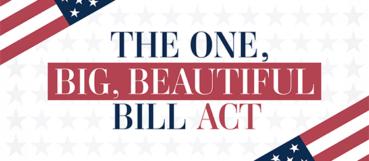Give your Staffers a Break with an Accountable Plan

Accountable plans reimburse employees for work-related expenses free of federal income and employment taxes. So reimbursement payments aren’t subject to withholding from staffers’ paychecks. Your not-for-profit also benefits because the reimbursements aren’t subject to the employer’s portion of federal employment taxes.
Most prospective employees probably won’t accept a job based on the availability of an accountable plan. But offering one can help you retain valuable workers who submit frequent reimbursement requests.
What’s Covered?
The IRS stipulates that all expenses covered in an accountable plan have a business connection and be “reasonable.” Additionally, employers can’t reimburse employees more than what they paid for any business expense. And employees must account to you for their expenses and, if an expense allowance was provided, return any excess allowance within a reasonable time period.
Examples of expenses that might qualify for a tax-free reimbursement through an accountable plan include tools and equipment, home office supplies, dues and subscriptions. Certain meal, travel and transportation expenses also qualify.
Informal Documentation
How do you establish an accountable plan? It isn’t required to be in writing. But formally documenting your plan makes it easier for your nonprofit to prove its validity to the IRS if it’s challenged.
When administering your plan, your nonprofit is responsible for identifying the reimbursement or expense payment and keeping these amounts separate from other amounts, such as wages. The accountable plan must reimburse expenses in addition to an employee’s regular compensation. No matter how informal your nonprofit, you can’t substitute tax-free reimbursements for compensation that employees otherwise would have received.
Keep Good Records
The IRS also requires employers with accountable plans to keep good records for expenses that are reimbursed. This includes, to the extent applicable, documentation of:
- The amount of the expense and the date,
- Place of the travel, meal or transportation,
- Business purpose of the expense, and
- Business relationship of the people fed.
You also should require employees to submit receipts for any expenses of $75 or more and for all lodging unless your nonprofit uses a per diem plan.
Simple Process
Because plans don’t have to be formal, they’re relatively simple to establish. As always, please do not hesitate to call our offices for additional information and to speak to your representative about how this could affect your situation.
© 2021





